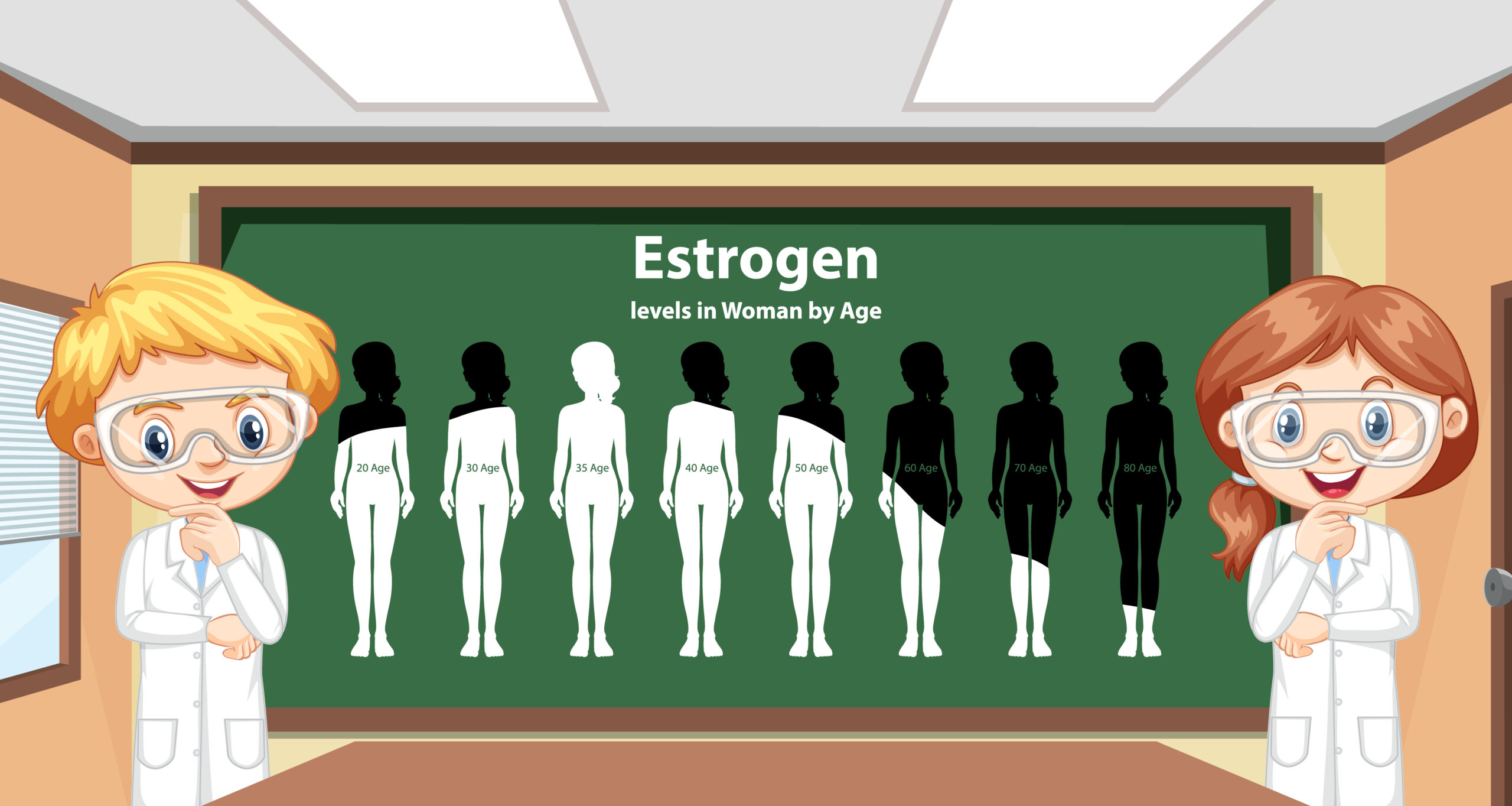Over the generations, certain aspects of women’s health have been considered taboo. However, it is time to address menopause as a natural process that all women will face at some point in their lives, similar to the way men go through andropause.
The decline in oestrogen levels associated with menopause has significant repercussions on women’s personal, social and working lives. Hot flushes and bone problems are some of the most commonly known consequences of this change in the female cycle, but in reality, menopause affects the entire body. From insomnia to joint pain, increased cardiovascular risk, mental fog, weight gain and fatigue, you can experience up to 40 different symptoms that can be very uncomfortable and interfere with multiple aspects of your life.
Decreasing oestrogen levels affect all the hormone-responsive organs in the body, leading to their atrophy. Reduced oestrogen also impacts collagen production, which is reflected in the skin, which thins and ages, as well as in the joints, which may experience pain due to cartilage loss. In addition, menopause can increase the risk of osteoporosis, which manifests itself through frequent fractures, especially in the wrists and vertebrae, and the characteristic “hump” that results from loss of height.
The menopause can also influence weight gain, due to a slowing of metabolism and an increase in triglycerides. In addition, it can affect moods, similar to premenstrual syndrome, causing melancholy and what is medically known as emotional lability.
However, there are a number of strategies to address menopausal symptoms and improve quality of life during menopause. Adopting a healthy and adapted diet, maintaining a regular physical exercise regime and keeping a positive attitude are key steps to reducing symptoms. For example, hot flushes are more common in women who are obese, smoke or consume excessive carbohydrates, coffee or alcohol.
For women whose symptoms are not relieved by lifestyle changes, there are additional treatment options. Natural treatments, such as the use of hops, soy isoflavones, black cohosh or sage, may be helpful for some women. Hormone therapy may also be recommended, especially when symptoms are moderate to severe. It is important to note that there are different hormone therapy alternatives available, tailored to each woman’s individual needs.
In addition to conventional treatments, options such as Fezolinetant, a non-hormonal drug that works by blocking hot flushes from the brain, are being investigated. In addition, treatments using natural hormones and foetal oestrogen are being studied, although these are still at an experimental stage.
To assess the appropriateness of hormone therapy, apps such as “My Menopause”, which allows women to assess their quality of life, and “HRT Eligibility Criteria”, which helps doctors determine whether a patient is a candidate for hormone therapy, have been developed.
Weight management during menopause is crucial because of its impact on women’s health and well-being at this stage. The hormonal changes associated with menopause can contribute to weight gain and a redistribution of body fat, which increases the risk of developing chronic diseases such as heart disease, type 2 diabetes and certain cancers.
To maintain a healthy weight during menopause, a combination of regular exercise and a balanced diet is recommended. Cardiovascular exercise, strength training and flexibility exercises are essential to burn calories, maintain muscle mass and improve flexibility and posture.
In terms of diet, nutrient-rich foods such as fruits, vegetables, lean proteins, whole grains and low-fat dairy should be prioritised. In addition, it is recommended to increase consumption of foods rich in calcium, vitamin D, vitamin K, isoflavones and fibre.
In summary, menopause is a natural process that all women will experience at some point in their lives. Although it can be accompanied by a variety of uncomfortable symptoms, there are many strategies available to alleviate these symptoms and improve quality of life during this transitional stage. With a comprehensive approach that includes lifestyle changes, treatment options and specialised care, women can move through menopause in a healthier and more comfortable way.


